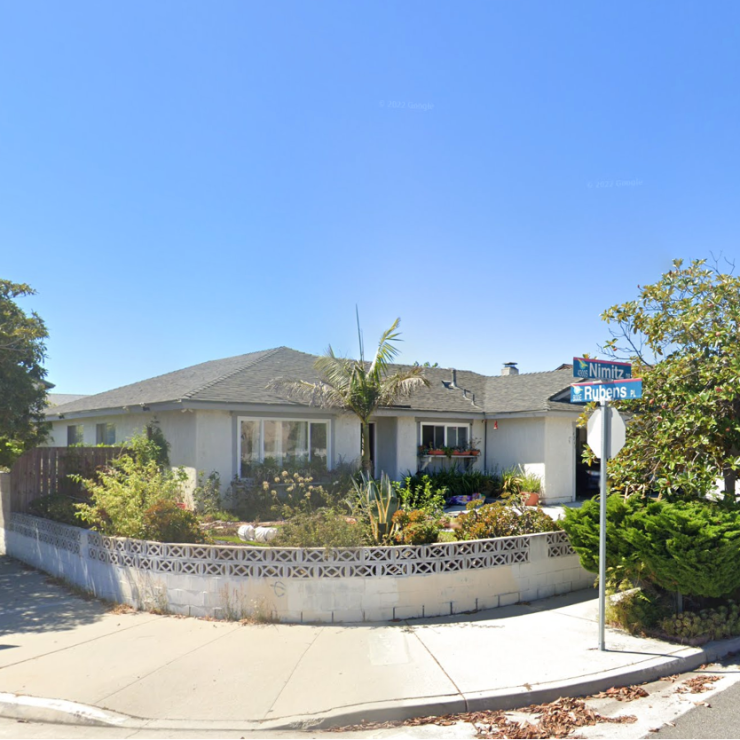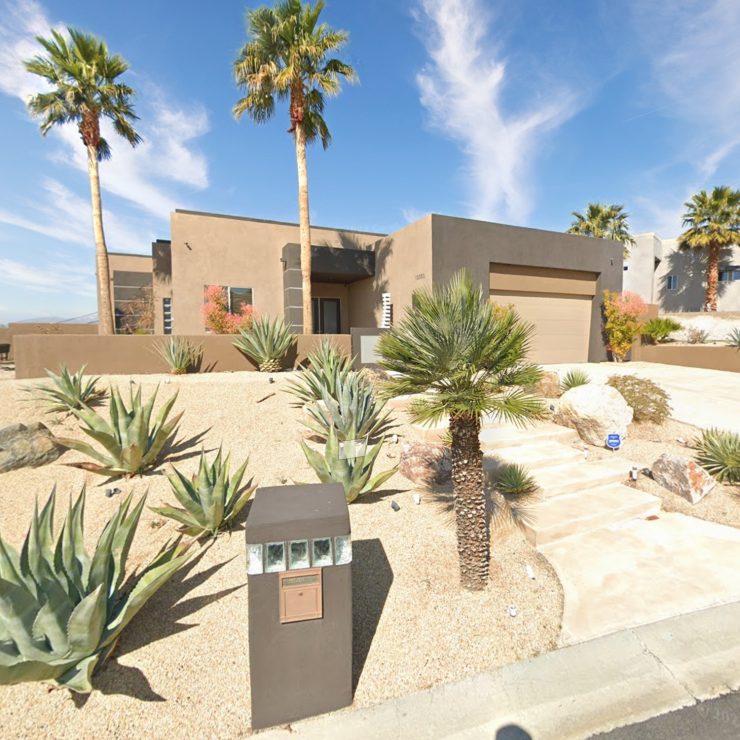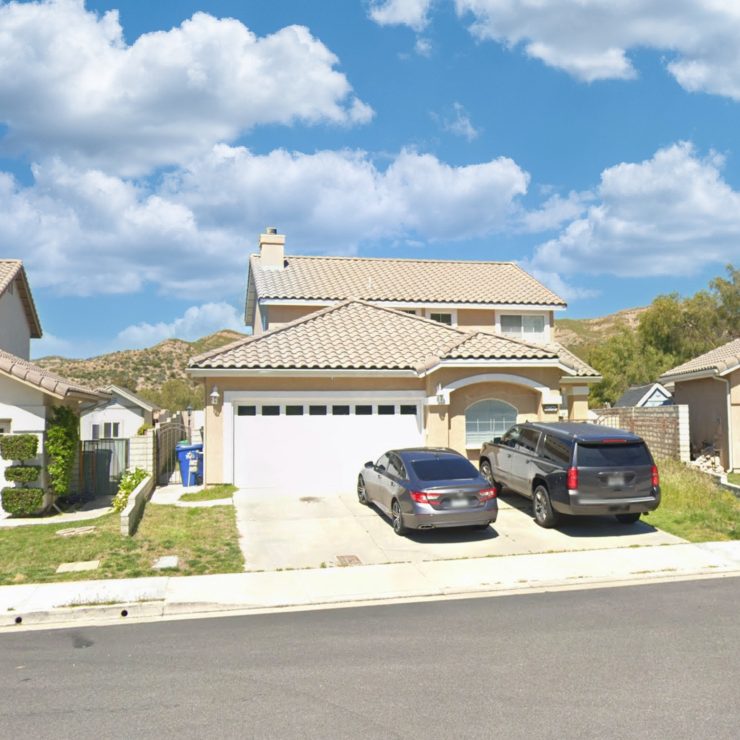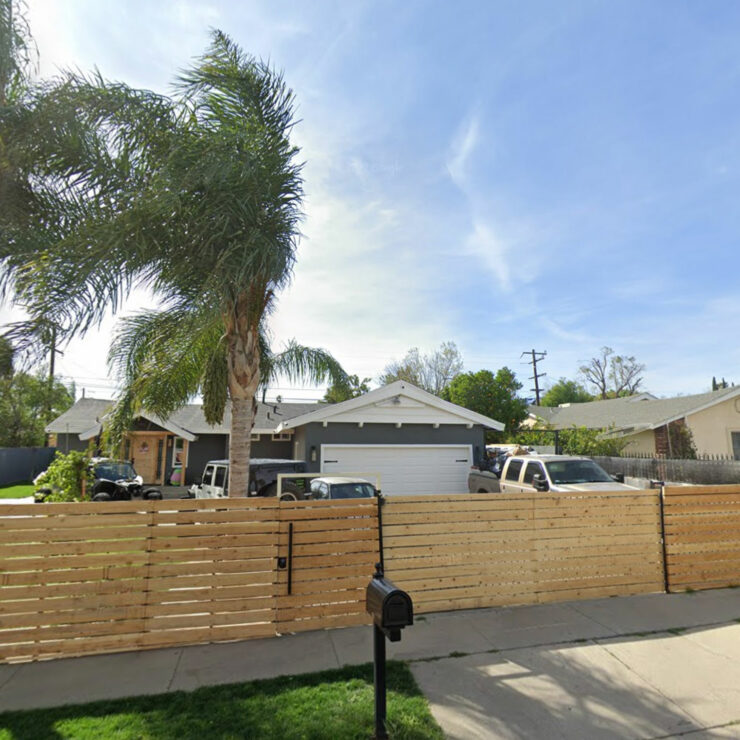Trust Deed Investing
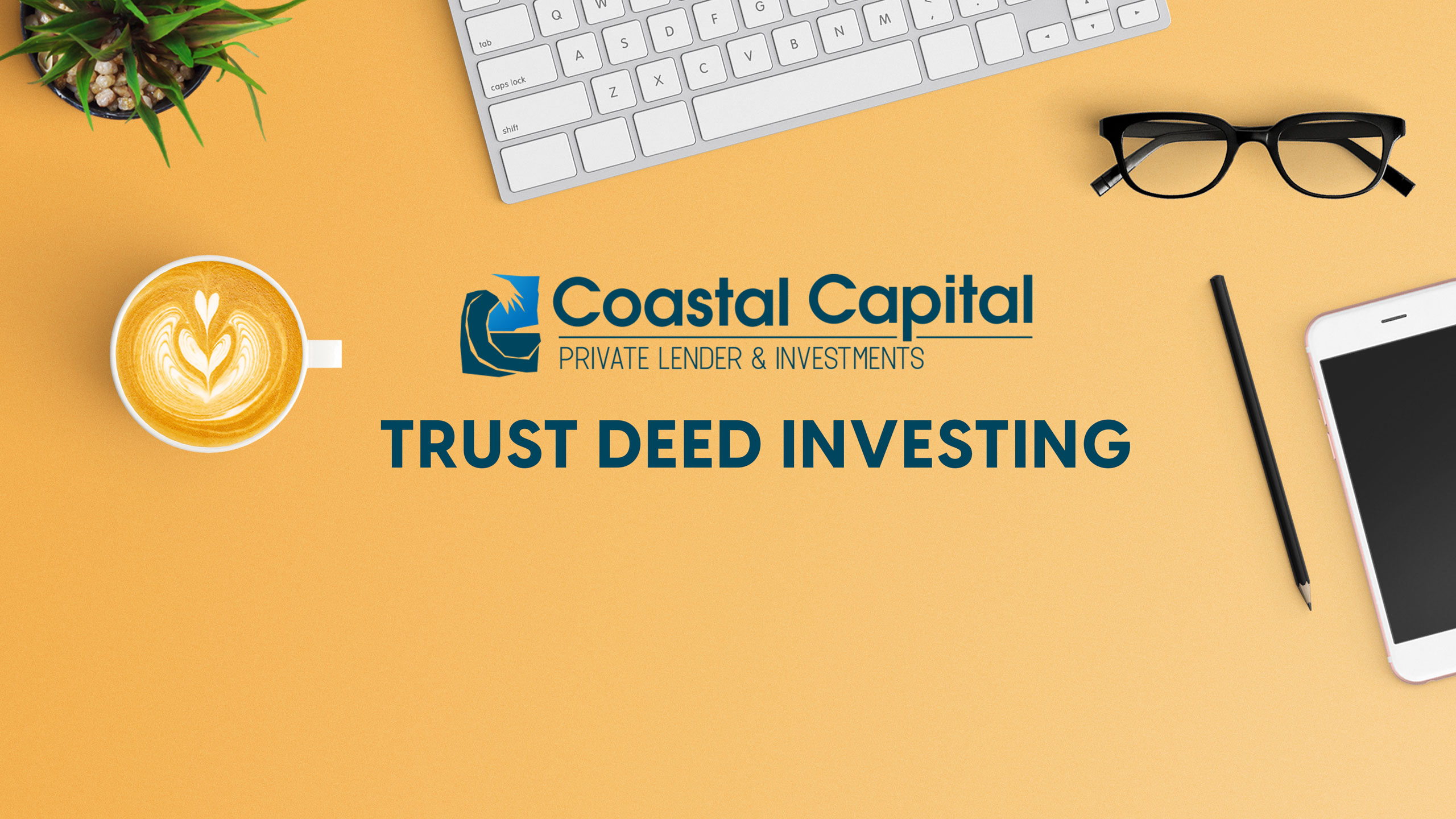
First Trust deed investing is simply investing in loans secured by real estate. This could be in first or second lien position with various terms from 1, 3, or 5 years. Most trust deed investments are relatively short-term loans made to professional real estate developers. Coastal Capital focuses on Business Purpose Loans in California. Returns on trust deed investing range from 8% to 14% depending on the borrower risk profile and lien position.
Here’s how Trust Deed Investing works:
Some professional real estate developers specialize in flipping properties meaning buying them, fixing them up, and reselling them for a profit. These developers often need loans to pay for the properties and renovation costs. Time is of the essence, so borrowers don’t want to wait 30-60 days to get approval from a bank.
Banks are reluctant to lend to these developers for several reasons, so the developers look for alternative lending options. Trust deed investors and trust deed funds fill this gap in the market by offering short-term loans. In return for making these loans, trust deed investors can earn attractive returns with relatively low risk.
Why are banks reluctant to lend to this market?
Banks are reluctant to make short-term loans to real estate developers primarily because doing so isn’t a good fit for their business model. Banks like longer term relationships.
Banks prefer to make real estate loans that fit a very strict set of criteria.
- Banks want to lend on properties that are move-in ready at the time of loan funding. The properties that developers are working on usually need some work. This reduces the risk of any construction or permitting issues.
- Following the financial crisis that began in late 2007, banks tightened their lending standards to an extraordinary degree. Red flags for banks are inconsistent sources of income, low FICO scores, and house flippers fall into that category.
There’s a major mismatch in the timelines banks and house flippers follow.
- Banks prefer to make real estate loans that will be outstanding and earn interest revenue for 15 to 30 years. People who flip houses plan to pay back their loans in under a year.
- Banks need to generate interest for many years because they must spend a lot of time underwriting borrowers in order to comply with complex regulations. Banks can’t make the profits they’re seeking on loans that will be repaid quickly.
- People who flip homes face intense competition when buying properties. One way they can increase the chances they’ll win the deal is to offer the seller a quick close. That means house flippers have very short loan funding deadlines, often one or two weeks. Banks can’t meet these short deadlines because of internal bureaucracy and the regulatory environment.
There’s more demand for short-term real estate loans than there is supply which benefits trust deed investing. The limited supply has nothing to do with the quality of the borrowers or loans, and it creates an investment opportunity for trust deed investors.
What are the advantages of Trust Deed Investing?
If structured properly, trust deed investing offers an attractive current yield with relatively low risk. Trust deed investors usually earn high single-digit annual returns, paid monthly. In some cases, returns above 10% are possible.
These returns are very favorable relative to other investment options with similar risk profiles, such as bonds. You can mitigate the risk of losing money in a trust deed investment by building an adequate margin of safety with conservative CLTV’s.
What is the margin of safety (CLTV) in a Trust Deed Investing?
The margin of safety is the difference between the loan amount and the value of the underlying property. Trust deed investing is that if the borrower does not perform (that is, pay back the loan on time, as agreed), the lender can foreclose on the property and sell it to recoup the investment, plus any past due interest. This is especially true in business purpose loans versus traditional consumer mortgages.
If the value of the property securing the loan is high relative to the loan amount, then the investment should NOT lose money even if the borrower defaults on the loan. A maximum trust deed investment might have a cumulative loan-to-value (CLTV) of 65%, meaning the loan is equal to about 65% of the property’s value.
A Loan-to-Value (LTV) is when there is one loan or lien, when there are 2 loans or liens then it’s a cumulative Loan-to-Value (CLTV).
For example, a trust deed investor might lend $650,000 on a property with a value of $1,000,000. If the borrower doesn’t perform, the lender, fund or the trust deed investor can foreclose on the property and, in the vast majority of cases, sell it for more than the loan amount.
What returns can you expect in Trust Deed Investing?
As of 2022, investors in a first trust deed fund can expect to earn 9% to 12% annual returns depending on that fund’s particular strategy and risk profile. Coastal Capital’s fund has been performing very well since 2007.
Professional Trust Deed Investors who source and originate their own loans can charge borrowers an annual interest rate of 9% to 9% plus 1 to 2 points for a 12-month loan at 75% to 80% loan-to-cost (LTC). Annualized, that is an 8% to 11% return, but that assumes the investor is able to source and originate a new loan immediately after the first loan pays off.
We explain points, LTC, and first trust deeds versus second trust deeds in more detail later in this FAQ.
Coastal Capital’s Underwriting Guidelines for Trust Deed Investing?
Area of Lending: California Only
Funding: As Little As 5 Days, Always Less Than 10 Must have a completed file
Occupancy: Owner- & Non-Occupied (proceeds to be used for business purposes/generate income)
Property Types Residential: SFR, Multi family, Condo, Townhouse, 2 – 10 Units, Land, Light Commercial, Flip
Property Condition: Property must show “Pride of Ownership”, properties with deferred maintenance will have a reduction in loan amount or hold back
Loan Terms:
- 1st or 2nd Position conditional 3rd
- < 65% CLTV 1 Year fixed Interest only, (Can purchase Years @ 1.0% of loan amount)
- >65% CLTV 1 Year fixed interest only, requires exception
- loan extensions available at signing 1% or end of term @ 1.5% point of loan amount
Prepayment Penalty Protection: 3 – 6 Months
Lending to: Individuals | Foreign Nationals | Corporations | LLC | LLP | Family Trusts
Minimum Credit: No minimum credit score required (must have an active mortgage reporting)
Documentation Needed:
- 1003, ID, Credit Report, Bank Statements (3 Months), Disclosers, Business Purpose Letter/Certified, Insurance, Prelim, Escrow, BPO
- If 2nd Position: Current Mortgage Statement, copy of 1st Note
- If Applicable: Rental Agreement, 1st Note Reinstatement/Payoff Letter, 1st Note Modification Agreement
What are the disadvantages and risks of trust deed investing?
All investment strategies come with risk, and Trust Deed Investing is no different. It’s best to seek guidance from trusted, experienced investors or fund managers. Creating a valid trust deed and accompanying note is not rocket science.
Here are the key risks to consider
- Trust deed investments are not liquid. In other words, you cannot decide you want your money back one day and quickly convert your investment into cash, as you could with a municipal bond or shares in a company trading on one of the major stock indices. You need to be willing to stick with your investment until the borrower pays off the loan, or, in case of default, until you have foreclosed and sold the underlying property.
- Trust deed investing offers little to no capital appreciation. The majority of the returns a trust deed investor earns come from the interest income the loan generates.
- Directly investing in trust deeds requires you to identify borrowers, assess deals on their merit, and conduct due diligence on the borrower and the property. Doing all those tasks well requires knowledge that takes time to acquire. The good news is that, if you don’t want to acquire that knowledge, you don’t have to invest in trust deeds directly. We explain other ways to invest in trust deeds below.
- Even a small flaw in the documentation or due diligence of a trust deed investment could cause an otherwise very safe investment to become very risky. For example, litigation or title problems could arise if the borrower or some other party can make a credible claim that your trust deed instruments are not valid. Or, this other party could claim that they have some interest in the underlying property that is equally or more valid than your trust deed instruments. In a case like this, you may need to enter legal proceedings to protect the investment.
How can I invest in trust deeds?
There are four main options for an individual to invest in trust deeds:
- Personally source individual loans and lend money directly to real estate investors.
- Purchase loans backed by real estate from brokers.
- Identify people who are directly investing in trust deeds as a group and invest along with them.
- Invest in a fund that invests in trust deeds i.e.: Coastal Capital in Culver City, CA
Read on to learn more about the pros and cons of each option.
What are the main risks of investing in trust deeds through a fund?
When investing in a fund, investors are delegating all day-to-day decisions to the fund manager. Evaluating the competence, character, and trustworthiness of the fund manager is critical. Investing in trust deeds can be done in a responsible low-risk manner; however, an incompetent fund manager can make mistakes that result in money being lost. In the worst case, a dishonest fund manager could steal the money that is supposed to be invested.
We offer guidance on how to evaluate a fund manager below, in answer to the question, “How can I evaluate someone offering trust deed investments?”
What is the minimum investment for Trust Deed Investing?
Most brokers and investment firms require minimum investments in trust deeds, but the exact amount will depend on who is offering the investment. Some investment firms allow investments as small as $10,000 while others require $100,000.
Successful trust deed investing requires thorough research on each investment, so it often makes more sense to invest a larger amount in a smaller number of investments rather than spread funds across many very small investments where the research behind each investment was more superficial.
Should I invest in an individual trust deed or in a trust deed fund?
The answer depends on your circumstances and preferences. If you prefer to actively manage your investments and you have deep knowledge of real estate investing, you may earn higher returns investing in individual trust deeds than investing in a fund like Coastal Capital’s Trust Deed Fund.
Each loan requires a great deal of analysis and due diligence on both the borrower and the property. When a loan pays off, the money sits in cash until it can be redeployed. Investing in individual trust deeds requires constant sourcing of deals so that when one loan pays off, the money can be reinvested quickly in another. The bottom line is its very consuming and marketing to get new deals may eat into your profits.
Passive investing via a professionally managed fund can save you time and effort. A good fund manager will have the infrastructure and expertise to analyze, underwrite, and perform other due diligence on individual loans. An established fund manager will also be in a better position to source deals and ensure that money is continuously reinvested.
Which are better investments, residential or commercial trust deeds?
Neither is better, but they are different, primarily with respect to valuation and due diligence.
Valuation
Commercial properties such as multi-unit apartment buildings or shopping centers are valued based on the cash flow, they produce each year. Single family residential properties are valued based upon comparable property sales in the neighborhood, not on their income potential.
Due diligence
Commercial property trust deeds require extra due diligence that the average investor may not be familiar with carrying out. For example, when investing in a trust deed secured by a shopping center or an industrial building, it is critical to have an environmental assessment of the property prior to funding. The presence of any environmental problems is a major red flag and could expose the trust deed investor to significant liability.
Whether you’re considering commercial or residential trust deeds, the key is to make sure that the LTV is conservative.
Can I use an Individual Retirement Account (IRA) for trust deed investing?
Yes. The first step is to work with a self-directed IRA custodian company. These firms specialize in administering IRAs that are invested in alternative asset classes such as real estate, trust deed funds, and commodities.
Two established firms based in California that work with Coastal Capital are U-Direct and Entrust.
What is the role of the loan servicer in Trust Deed Investing?
The loan servicer collects interest payments from the borrower and disburses them to the lender. The servicer also initiates the foreclosure process at the request of the lender in case of default by the borrower. One of the largest servicers for trust deed investments in California is called FCI Lender Services.
The loan servicer manages the cash payments from start to finish. Initially from the loan setup, collecting the monthly payments to the payoff report. See the Standard Loan Servicing from FCI.
What is Loan-to-value (LTV)?
Loan-to-value (LTV) is the total amount of the loan divided by the value of the property.
If a property is worth $400,000 and the loan amount is $240,000, then the LTV equals $240,000/$400,000 or 60%.
Loan-to-Value is important because the margin of safety is directly related to the LTV. A low LTV means a higher margin of safety for the lender. An LTV of 65% or lower is generally a good signal, although for a very small loan even a low LTV may not equate to a safe loan.
What happens if the borrower doesn’t perform?
If the borrower fails to make an interest or principal payment or fails to live up to some other provision of the loan agreement, a default occurs. At this point, the lender Coastal Capital instructs the loan servicer FCI Lender Services (to file a notice of default.
This is the first step in a series of events that culminates in a foreclosure sale. In California, it takes about four months after the notice of default is filed to hold a foreclosure sale.
At any time after the notice of default and before the foreclosure sale, the lender and borrower could make arrangements that would eliminate the need for the foreclosure sale. For example, the borrower could cure the default by making all the payments due. Or the lender could give the borrower more time to pay back the loan.
When a foreclosure sale does take place, there are two main outcomes.
- The lender ends up owning the property.
- Someone else makes an all-cash bid to purchase the property, and the lender accepts that bid instead of taking back the property.
Trust Deed Investing Advantages
High Fixed Income Yields
Trust deeds can earn you a great return on investment (ROI) and can perform better than other asset classes. In times of volatility in equities, the steady yields of trust from 7.5% to 13% can provide a good base of gains in your investment portfolio. Many investors commit 30% to 50% of their portfolio to trust deeds to ensure month cash flow.
Diversification
There is going to be some volatility in your portfolio; however, you can dilute this by having diversity in your investment choices. One way is to fund trust deeds in different real estate markets. Another way is to invest in multi-lender, or fractional loans invest in multi-lender, or fractional loans, where you are investing in many loans with other investors rather than just a handful of whole loans. Many investors choose to join a share-based fund, such as Coastal Capital, where they essentially buy into a LLC partnership and own their pro-rata share of a hundred plus trust deeds. Trust deed funds provide instant diversification and eliminate to deal with other investors or lenders that may disagree on how to unwind a deal.
Security
All trust deeds are secured by real property. If the borrower defaults on the loan, your funds are secured with the real estate collateral that you can initiate the foreclosure to get your money back. Ideally, lenders and borrowers want to avoid foreclosure, working out a payment or loss mitigation agreement allowing the borrower to bring the payments current or pay off the loan entirely through a property sale or refinance.
Stability and Predictability
Not only are trust deeds secure, they are stable and predictable as long as you’re carefully underwriting the loan and not overleveraging the property. The interest rate and monthly payments are usually the same throughout the duration of the loan, allowing you to budget your income or reinvestment strategy.
You Don’t Have to be a Landlord
With trust deeds, you do your due diligence on the loan, fund the loan, and let your broker set up the loan servicing, then wait for the payments to arrive each month via electronic deposit. Or, you simply invest in a Fund and let the management handle the entire process and just collect your share of the monthly interest (make sure you know all fees prior to investing.) It’s a much easier process than being a landlord and managing your own properties.
Tax Advantages
Some trust deed investors utilize self-directed retirement accounts, 401Ks, IRAs, or pension plans they manage through their investments. Companies such as uDirect and Entrust make it easy to change from a traditional IRA or Roth Ira where you can only invest in mutual funds, stocks & bonds to one where the investor has complete checkbook control. At Coastal Capital this option is extremely popular for our investors in their forties and early fifties are aiming for higher yields from 10.00 to 12.00% while removing risk and market gyrations.
Since 2007 Coastal Capital has provided short-term loans secured by real estate to developers & real estate investors who purchase, rent, renovate, and resell single family homes, multifamily buildings, light-commercial properties, and land. There are numerous reasons why borrowers may need liquidity (such as paying off other debt, improving a property to raise rents, difficulty for the self-employed to qualify, traditional bank timeline is to funding is to lengthy, etc.) and are willing to pay above-market rates. These loans provide investors with a consistent stream of income from interest payments while allowing borrowers to access working capital for their projects.
Examples of Investments in the Coastal Capital Fund
Examples of Investments in the Coastal Capital Fund
In conclusion, it’s best to plan next year and multiple years out if you’re nearing retirement. Having multiple steams of income during retirement elevates a lot of financial stress. Visit www.CoastalCapital.com for more information about their trust deed income fund.



